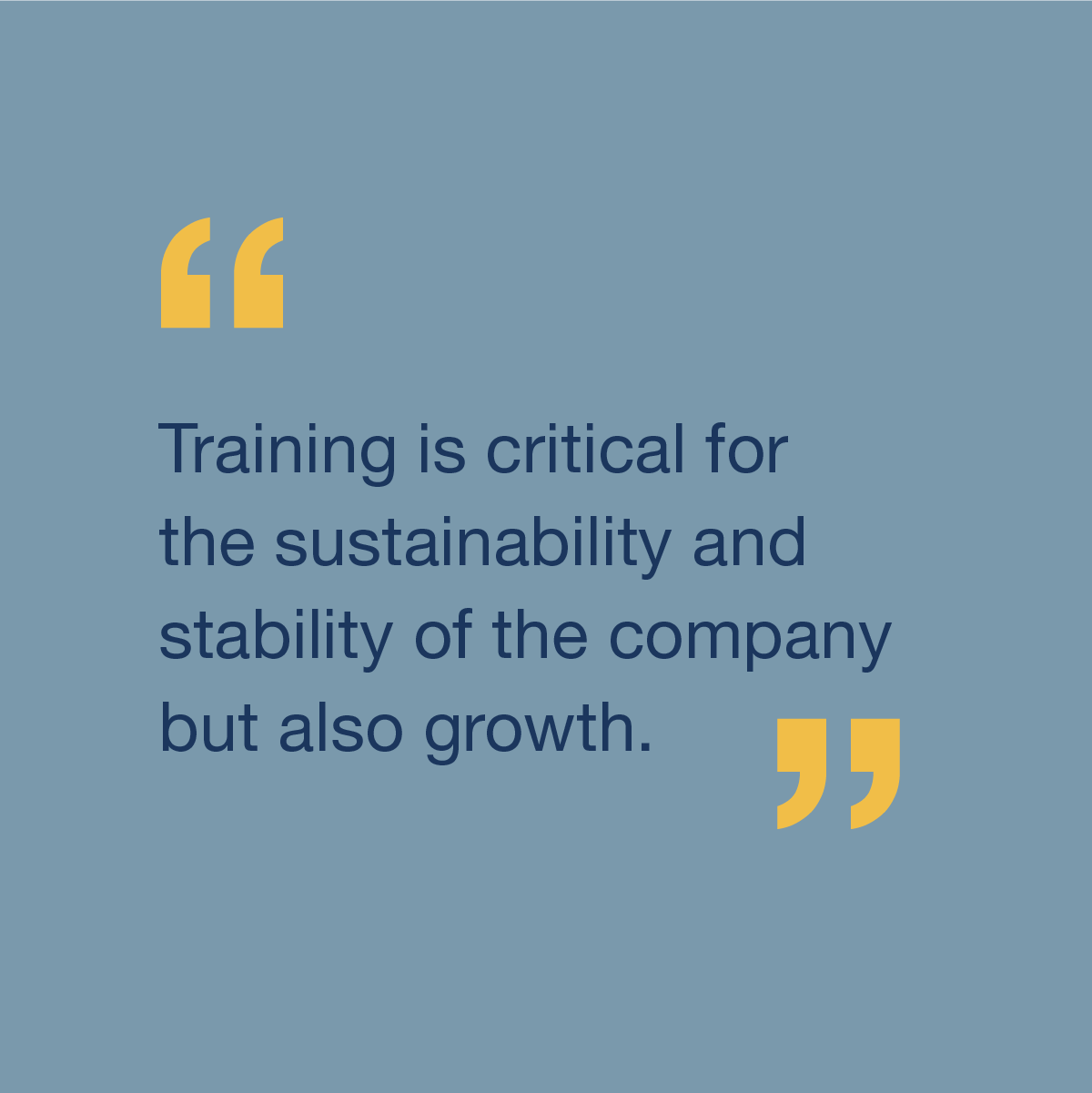What You Can Do About the HVAC Technician Shortage
March 9, 2023
Developing a culture of training plays a huge role in combatting the HVAC technician shortage. Here’s how.


Whether contractors realize it or not, the industry is on the brink of a huge HVAC technician shortage. Now, that doesn’t mean it’s time to worry—but it does signal a change in your approach to recruiting and training technicians.
We asked Jose De La Portilla, Senior Manager of Education & Training at Rheem, about the state of the industry, predicted labor issues and how contractors can prepare their businesses to minimize impact. Here’s what he said.
Understanding the Workforce Shortage
If it has felt challenging to attract and retain team members lately, you’re not alone.
“The industry says we are somewhere around 65,000 technicians short of being fully staffed,” De La Portilla says. “With that shortage and knowing that the average retirement age for technicians is around 65, but the average age of the industry is around 52 to 55, we are going to be hurting in five to 10 years.”
Current staffing levels, along with a bigger HVAC technician shortage on the horizon, have big implications for contractors trying to grow their business. For one, it means longer response times, especially during peak heating and cooling seasons or extreme weather events. And longer response times can come with a negative overall customer experience, impacting business overall.
A labor shortage may also mean the inability to grow your customer base, as some contractors may not have the resources to accept new business, even if they wanted to.
It paints a bleak future, sure, but that doesn’t mean these repercussions are inevitable. The key is to start preparing now.
How to Fend Off a Workforce Shortage
So, what can contractors do to mitigate a future technician shortage?
1. Build a culture of training.
Developing a culture of training may not be a top priority for your business right now, but it should be. Creating an environment that emphasizes learning will create a young technician pipeline that prevents labor shortages in the future.
“Unless we develop a culture of training right now, contractors are going to fail because there just won’t be people to keep their crucial work going,” De La Portilla says. “Training is critical for the sustainability and stability of the company but also growth.”
To build a culture of training, start small. Consider hosting evening training sessions to start, including a meal to incentivize your staff to stick around. From there, perhaps the team attends training with your distributor.
“If you’re worried about busy seasons, find the shoulder season to start your training program. And then once you start to foster a training culture within the company, these technicians, installers and salespeople will go out of their way to take training to better themselves.”



2. Find people outside the industry with the right work ethic.
The second part of the equation is finding the right people. And that starts with expanding your horizons outside of the industry.
“Having training is critical for business, but also contractors have to start looking outside of the industry for quality people,” De La Portilla says. “We’re not getting that quality pipeline of people from trade schools like they did in the 1940s, 1950s, 1960s and even 1970s. So, we have to find people with the right attitude and work ethic to train them to become the right people we need.”
People with the right work ethic and attitude can be taught the ins and outs of the trade, including not only the technical aspects of the business but also other important business know-how, like sales, communication and overall professionalism. All of these aspects work together to build a well-rounded, capable team.
“If a contractor wants to win more business and grow their business, if they don’t have a sales staff that’s educated on the technical side of the business, sales and professionalism, they aren’t going to win, because if they push an individual into the home without all of these skills, they are not going to be able to build a business anywhere,” he says.
At the end of the day, whether you’re recruiting people in the trade or not, providing staff the training resources and the time to train will be essential for not only the future of HVAC but also future business success.
“Training will help us to educate staff and make them better,” De La Portilla says. “And if we educate our staff, we have less warranty issues and less callbacks. And if we have less of those two things, then profitability goes through the roof.”
For access to business and training resources and more information on the latest HVAC industry news, visit Rheem.com/HVACKnowZone.

























